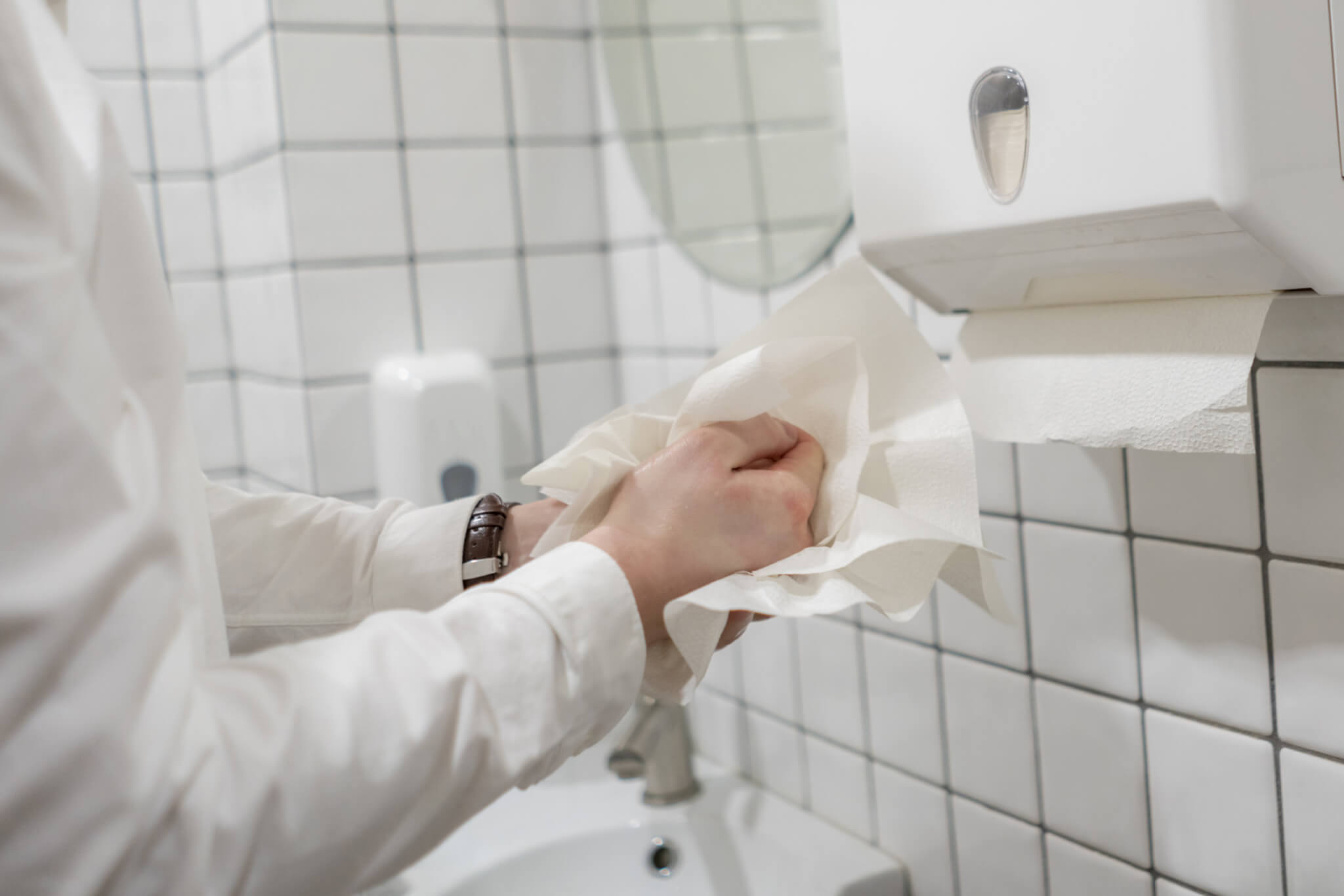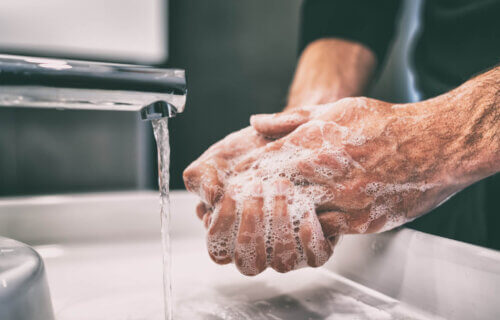SHEFFIELD, England — Ever since the coronavirus pandemic, many people are using harsh soaps and hand sanitizers to avoid getting sick. One recent study conducted by experts at the University of Sheffield reveals that gentle cleansers are just as effective as those tough-on-skin soaps in when it comes to killing viruses, including COVID-19.
Healthcare professionals experienced a significant increase in the incidence and severity of irritant contact dermatitis, a skin disease caused by the constant use of harsh soaps and sanitizers. The condition leads to redness, swelling, and damaged skin. Even worse, it not only exacerbates the transmission of bacteria and viruses but also affects compliance with personal protective equipment (PPE) and proper handwashing.
Researchers with the Sheffield Dermatology Research (SDR) group conducted extensive testing on multiple handwash products, including antibacterial soap, natural soap, foam cleansers, and bath wash products. The study found that gentle cleansers were effective in killing enveloped viruses such as human coronavirus and influenza. This discovery is particularly significant for healthcare professionals, as it offers an alternative to harsh soaps that can cause adverse effects on the skin.
“We don’t have to use very harsh products on our skin in order to kill viruses,” says study lead author Dr. Munitta Muthana, in a media release. He emphasized the importance of using milder wash products to combat irritant contact dermatitis.

While gentle cleansers were effective against enveloped viruses, the study revealed that non-enveloped viruses, including norovirus, exhibited greater resistance across all types of handwashing products. Norovirus, known as the winter vomiting bug, proved to be the most resilient. Even extended exposure to handwashing products did not disrupt the virus, except for bleach disinfectants, which are too harsh for regular use on the skin.
“Measures such as isolation and disinfecting surfaces with bleach are more effective in preventing the spread of the norovirus infection,” says study author Natalie Winder.
The researchers suggest further research to explore the possibility of producing heavily diluted bleach-based hand washes that are safe for use on the skin. Their study is published in the journal Frontiers of Virology.
How well do you wash your hands?
Proper handwashing is one of the most effective ways to prevent the spread of germs and illness. It’s a simple but crucial practice that can significantly impact your health and the health of those around you. This guide will walk you through the best handwashing practices, covering everything from timing and technique to soap selection and drying methods.
When to Wash Your Hands
It’s important to wash your hands frequently throughout the day, especially in the following situations:
- Before, during, and after preparing food
- Before eating
- After blowing your nose, coughing, or sneezing
- After using the restroom
- After touching animals
- After taking out the trash
- After visiting a sick person
- When your hands are visibly dirty
In general, it’s a good idea to err on the side of caution and wash your hands more often than you think you need to.
How to Wash Your Hands
Follow these steps for effective handwashing:
- Wet your hands with clean, running water (warm or cold).
- Apply enough soap to cover all surfaces of your hands.
- Lather your hands by rubbing them together vigorously for at least 20 seconds. Make sure to focus on all areas of your hands, including:
- The backs of your hands
- Between your fingers
- Under your nails
- Your fingertips
- Rinse your hands thoroughly under running water.
- Dry your hands completely with a clean towel.

Additional Tips for Effective Handwashing
Here are some additional tips to ensure you’re washing your hands effectively:
- Use warm water if possible, as it helps to open up pores and remove dirt more effectively.
- Choose a soap that is effective against germs and bacteria. Look for soap that contains at least 60% alcohol.
- Sing the “Happy Birthday” song twice while lathering your hands. This helps ensure you’re scrubbing for at least 20 seconds.
- Keep your nails clean and trimmed short.
- Avoid touching your face with unwashed hands.
- Make handwashing a habit for everyone in your household.
Handwashing vs. Hand Sanitizer
While handwashing is always the preferred method for hand hygiene, hand sanitizer can be a good alternative when soap and water are not readily available. Choose a hand sanitizer that contains at least 60% alcohol and apply it liberally to your hands, covering all surfaces. Rub your hands together until the sanitizer is dry.
It is important to note that hand sanitizer is not as effective as handwashing at removing all types of germs. It is also not effective against certain viruses, such as norovirus.
The Importance of Proper Handwashing
Proper handwashing plays a vital role in preventing the spread of infectious diseases. By following the steps outlined in this guide, you can help to keep yourself and those around you healthy.
Here are some additional resources you may find helpful:
- Centers for Disease Control and Prevention (CDC): https://www.cdc.gov/handwashing/index.html
- World Health Organization (WHO): https://www.who.int/teams/integrated-health-services/infection-prevention-control/hand-hygiene
- Mayo Clinic: https://www.cdc.gov/handwashing/when-how-handwashing.html
By making handwashing a regular part of your routine, you can help to create a healthier world for everyone.

“Choose a soap that is effective against germs and bacteria. Look for soap that contains at least 60% alcohol.”
I believe you mean that if soap is not available, use hand sanitizer that contains at least 60% alcohol.
But what does this do to all the good bacteria that live on your skin?
While I agree that hands need to be washed when they are clearly contaminated, it seems to me that excessive hand washing and using alcohol or other harsh chemicals is likely to cause more problems than it is worth.
https://www.ncbi.nlm.nih.gov/pmc/articles/PMC4744460/